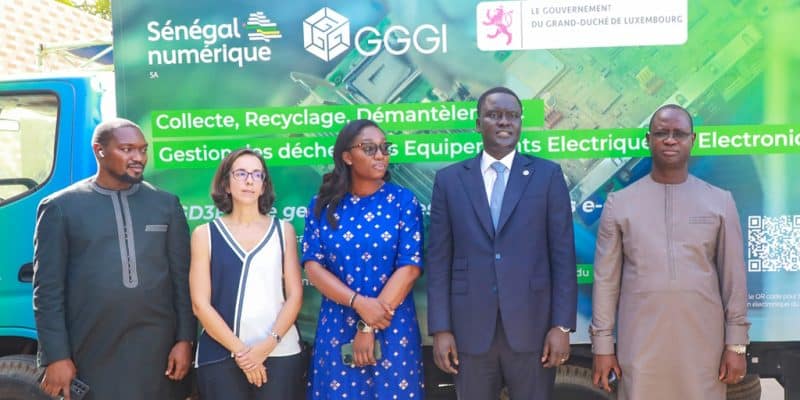In the Thiès region of Senegal, the Global Green Growth Institute (GGGI) is preparing to inaugurate the first electronic waste recycling plant in the rural municipality of Sandiara,
The problem of managing electronic waste will soon be a thing of the past in Sandiara. The municipality of 28,430 inhabitants in western Senegal is building a plant to process and recycle used appliances and equipment. The facility is being funded to the tune of 50 million CFA francs (76,000 euros) by the Global Green Growth Institute (GGGI), and the government of the Grand Duchy in Luxembourg.
The project, which will help to develop the circular economy, is being implemented in partnership with the Agence de l’Informatique de l’Etat (ADIE), which has become Sénégal Numérique. According to the Dakar-based institution, the new Sandiara plant, located 105 kilometres from the Senegalese capital, will help to create local jobs and protect the environment.
According to a report by the Global E-waste Statistics Partnership (GESP) cited by the United Nations (UN), 17.4% of electronic waste was “correctly” collected and recycled in 2019, avoiding the emission of 15 million tonnes of CO2 equivalent worldwide. However, according to the Spanish authorities, illegal imports of spare parts for vehicles and obsolete household appliances into Senegal reached 2,500 tonnes in 2020 alone.
Read also-SENEGAL: In Kaolack, SENELEC is launching a waste-to-energy project
Faced with this situation, the Senegalese government has announced that a regulatory framework for e-waste management will be in place by 2022. This long-awaited legislation should enable the country of Teranga to combat the pollution and respiratory illnesses caused by equipment that has reached the end of its useful life. Neighbouring Ghana is focusing more on infrastructure. A recycling centre for electronic waste was recently inaugurated in Accra, where cables, mixed batteries, thermoplastics and cathode ray tube televisions can be recycled and resold.
Benoit-Ivan Wansi






